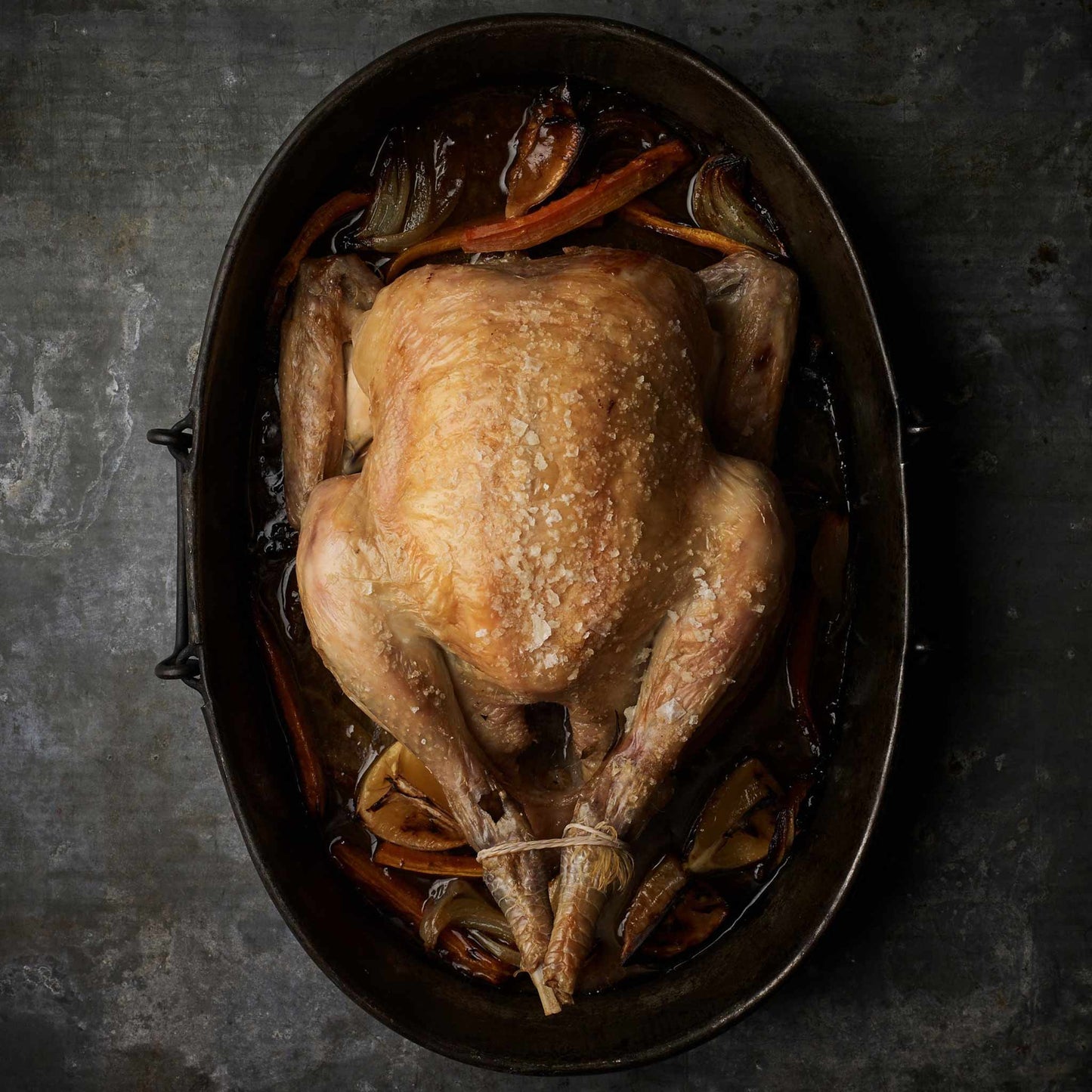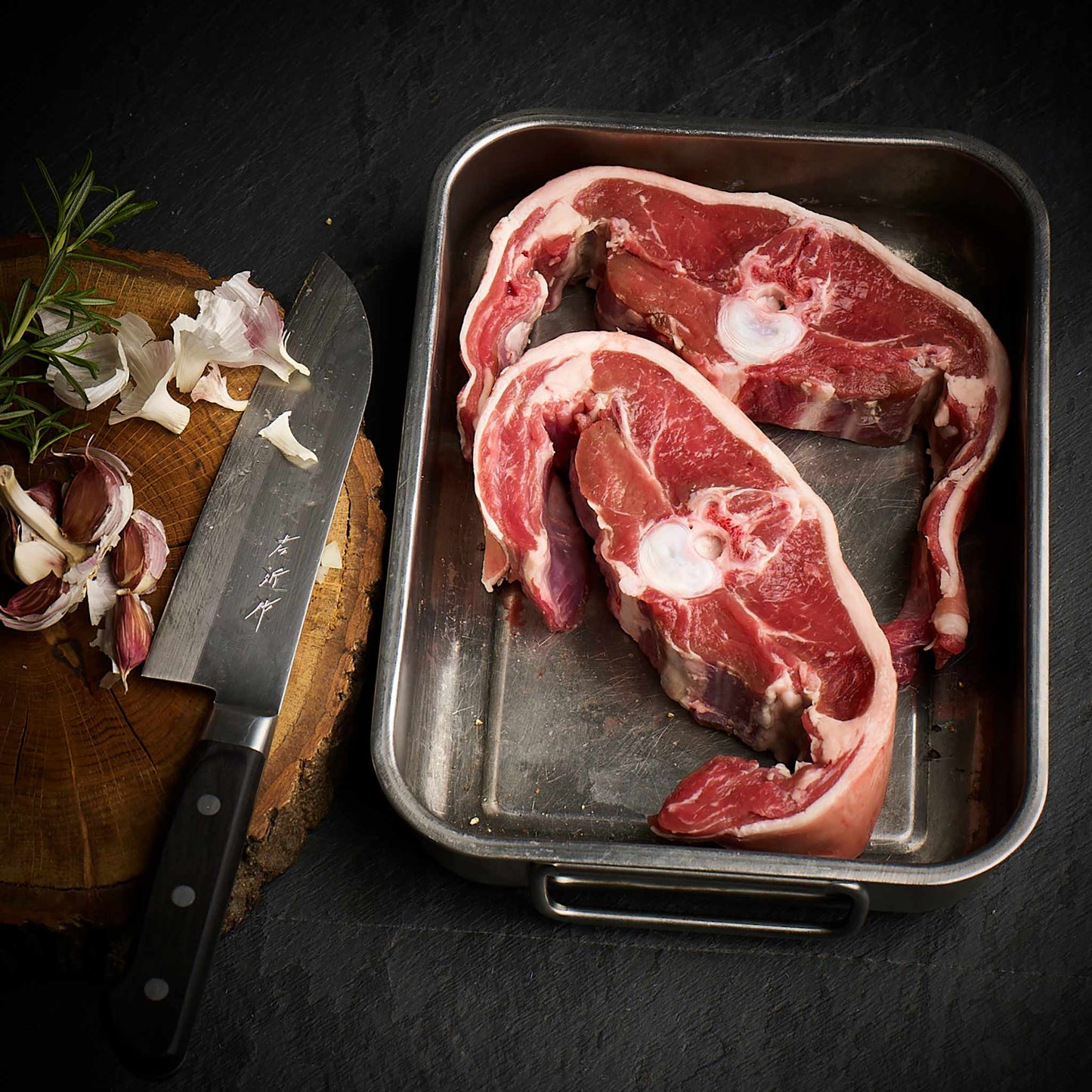We source our chicken from one farm in Leicestershire. The farm is Pasture for Life certified and rears truly free range, outdoor birds.

This article is edited from an original version written by our founder Glen Burrows and published in WeMove
I dislike food labels, not the ones on the food but the ones we attach to ourselves. These labels are based on ethical, cultural, religious or health based rationale as to what we will or won’t eat. Humans are inherently tribal and love a sense of belonging, we tend to feel a strong sense of identity to these labels and it’s a convenient way of explaining our belief systems to other people.
Many people who make a conscious choice about food pick a belief system and slot themselves into it, be it fruitarian, vegan, vegetarian, pescatarian, semi-vegetarian, kangatarian (vegetarian with Kangaroo meat, honestly this is a thing!), conscientious omnivore, paleo, raw vegan and so on and on……
So why do I have a problem with other people’s convictions, surely that means that they are making informed choices about food and choosing which side of the ethical line they feel comfortable on? Well no, they don’t, my point is that many of them stop making decisions at all.
Robert Anton Wilson famously said “....once you have a belief system everything that comes in either gets ignored if it doesn't fit the belief system or get distorted enough so that it can fit into the belief system. You gotta be continually revising your map of the world.”
I’ve been there, blindly labelling myself as a ‘vegetarian’ for 25 years happily chomping down on my GMO soya products that were possibly grown on deforested amazonian rainforest smug in my moral superiority over the evil planet destroying meat eaters, my worldview fitted my belief system and I had stopped considering alternatives, for an atheist I’d found my religion.
Of the reasons that cause people to limit the foods they put into their bodies, health, ethics and environment are the most evocative and cause the most passionate debate with all sides arguing their cases through carefully recited studies that reinforce their existing worldview.
I’ve been involved in debates with vegans who simply cannot accept that it is possible to eat a less environmentally damaging diet as a conscientious meat eater than a unconscientious vegan. Take the often spouted claim that Brazilian rainforest is cleared to make way for cattle ranches, this simply isn’t true, for example in the Mato Grosso State of Brazil over 70% of cleared forest is used to grow soybeans and over half the nation’s soya harvest is controlled by a handful of international agribusiness companies with questionable ethics to say the least, however, the food they produce technically is a vegan protein staple. Take the alternative conscientious omnivore eating grass fed beef raised on natural grasslands that have not changed from their natural state of thousands of years, clearly the ethics quickly get confusing if you bother to investigate.
So what now? Now I eat from all food groups however giving up my last label was a hard one, I had nothing to cling to, I had to redefine myself and at first it felt like making a 180 degree turn and giving up a large portion of how I had defined myself over the last 25 years, it wasn’t easy.
Making a case for grass fed beef or lamb now seems so logical as I have allowed myself to consume it. Grass is a superfood, it’s drought resistant, creates soil that sequesters both methane and carbon and grows naturally on large areas of land in temperate areas of the world. Humans can’t eat grass, we can’t digest the cellulose, large ruminant animals can eat grass and can convert into a form of protein that humans can store, transport, save and consume.
Destroying grasslands to produce monocrop agriculture is environmental disaster, the crops need careful management and require chemical fertilizer and the tilling and sowing over time will destroy soil, often releasing carbon and methane stored over millennia, the situation is far from cut and dry.
Grazing animals are designed to eat plants and require large amounts of fibre in their diet for their digestion to work correctly. When an animal is fed an unnatural grain based diet the nutrients are supplied very quickly, enabling the animal to fatten faster, returning a better profit.
This practice causes fermentation acids to accumulate in the rumen, stops the animal absorbing essential nutrients and often leads to ulcers and eventually abscesses on the liver. You can see where this is going, factory farming is wrong, very very wrong.
I accept that many vegans / vegetarians have made their decision based on a strong moral standpoint that regardless of environmental convictions they simply believe that the taking of life involved in the meat industry is wrong. If you are a vegetarian for this reason, I fully respect you but would urge you to constantly question everything you believe, as should everyone.
Great freedom can be gained from removing labels from ourselves, for example, if I eat raw vegan 3 meals a day for 6 days and then eat a steak to replenish missing nutrients am I still a raw vegan? I bet many vegans would punch me for even suggesting I was. How about someone who lives on GMO soya products, fried in canola oil, still vegan but hardly ethical compared to a conscientious omnivore.
I have learned to listen to my body and feed it accordingly with a much improved sensitivity to what I need, to quote Nietzsche “there is more wisdom in your body than your deepest philosophies”.
Freeing yourself from a label helps you make decisions that aren’t just based on your 'ism', my own journey has seen my health improve and has seen me take a continuous active investigative interest in the quality and source of everything I eat with the freedom to make u turns on a daily basis if it seems right.
I'm left without a tribe, without a label and sense of belonging, if I need to belong to something what would I choose? I guess the closest thing that fits my aims would be a 'Regenetarian', you heard it here first.



